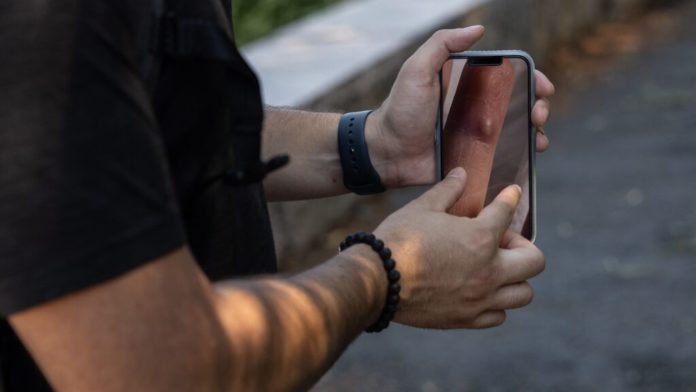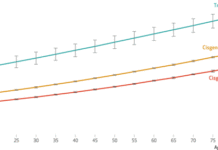
The monkeypox outbreak that has spread around the world has disproportionately affected gay, bisexual, and other men who have sex with men. But some public health experts are warning that the messaging about the outbreak needs to be reframed to take into account the risk to other populations, particularly underrepresented racial and ethnic groups.
These experts caution that current messaging may leave many people with the false impression that they are not at risk for monkeypox. They’re also concerned about access to health care for people from underrepresented racial and ethnic groups who do contract the disease.
STAT recently spoke about these issues with Stella Safo, a primary care physician at Mount Sinai specializing in HIV treatment and public health and the founder of Just Equity for Health. Her work has centered on creating inclusive health models and accessible care practices that focus on presenting symptoms as opposed to demographics.
advertisement
This interview has been edited for length and clarity.
What have you been seeing that’s most concerning to you in the coverage of monkeypox, and how we’re treating it as a country? How is it impacting your work?
advertisement
One of the reasons why I was concerned is because in addition to seeing HIV patients, I also see my non-HIV patients. I see people who don’t have HIV, who are older, I see women. And one of the things that’s happening is people are just confused. They don’t know why they can’t get the vaccine. They don’t know if they’re at risk or not.
So I’m seeing on the ground in real time what’s happening with the messaging with monkeypox, and how it’s confusing people. And so I’ll have people who come in and they say, you know, “I’m not a gay man and I can’t get this disease.” And that’s just wrong. And so there’s a concern that I have, based on my clinical care that I’m giving, that people just are not able to have the right information to be able to actually protect themselves.
What information would you say people absolutely need to know?
The most important information about monkeypox to understand is it’s a contact-based disease. So once you kind of get that into your head, then you’re able to start to protect yourself. This messaging — that it’s an STI or it’s primarily for gay men — is deceptive because if someone comes into contact with monkeypox and they get monkeypox, they may say, well, “I’m not in that group, so it can’t be monkeypox. I’m not going to get help or isolate.” So the most important piece of messaging we can spread is that monkeypox is a contact-based disease. It is infecting certain populations more right now, but it has the potential to go to the general population and us understanding how to protect ourselves and how to protect each other is really important to control the spread.
Why is monkeypox impacting certain populations more?
So one of the things that happens when you have a high amount of disease in a population that interacts a lot with each other is you’re going to see it spread in that population. There is the practice of having sexual parters, of having group sex, and so if in that group you have a disease that spreads by contact and all those group members tend to hang out together, which would make sense, right? You know, men who have sex with men hang out with other men who have sex with men. So if you have a higher prevalence of a contact-based disease in that environment, and sex is one form of contact, then what you’re going to see is that population seem to have more. It doesn’t mean that there’s something that’s happening that’s making them have it more because of biology, it just means that the prevalence is higher in that group, that group tends to spend more time together, and they tend to have the kind of contact that spreads monkeypox.
Who has the most access to health care to be able to get tested and to report? It’s been established that there are disparities even within marginalized groups. Are monkeypox numbers actually higher for men in the gay community or are other groups just not reporting?
We’re hearing there are people now who are getting on social media and saying, “I have all these lesions. I think it’s monkeypox, I can’t get diagnosed.” And so one thing that is a reality is that we have a definite underreporting of it and so we’re behind. We think it’s more men who have sex with men, but it’s also likely happening in other groups and we’re just not seeing it because we’re not testing people for it. So there’s a little bit of, yes, this community has it more because there are more people who are infected, and we’re under-testing in other communities probably, where we’re not seeing it.
To the point of disparities, I think it’s really important to note that you need to be able to go to an emergency room or go to your primary care doctor. Your primary care doctor or an emergency room has to have public health resources in order to diagnose you. You think about the South, where public health resources are not as robust as in other places. In different parts of the country where Black and brown folk cannot get access to health care, either they can’t afford to go to the emergency room or don’t have a primary care doctor, the numbers probably look lower in those groups than they really are. And so that’s something else to think about — we’re not seeing everyone who probably is infected at this point.
We also know that people who are infected, who are men who have sex with men, who are trying to get the vaccine, can’t get the vaccine. It’s been more difficult because the vaccine spots — at least in New York they open up and it’s first come, first serve. Who’s lining up to get the vaccines? It’s predominantly white, middle- and upper-middle-class individuals. It’s unfortunate that it’s a real series of events that I think are going to give us the wrong data about who has it and make people who are at risk think that they’re not at risk, and so that’s going to make it more likely to spread. So we’re not in the best position right now.
If this framing and messaging continues, what do you see happening?
With monkeypox, we’ll be playing a bit of catch-up in terms of the messaging, in terms of how to counsel people who are not in these groups that we’re expecting. And so that’s why many of us who are in public health and who are clinicians are just trying to sound the alarm now. Let’s not waste time. Let’s not have to play catch-up. Let’s just get in front of it and understand that this is an infectious disease that can infect anyone and that we should be looking for it and more people, and that we should be addressing stigma, and not just for men who have sex with men, but for everyone. Because what’s going to happen next is when Black and brown people start to get diagnosed with it more, they’re going to start saying things like, well, these people aren’t clean, that’s why they have monkeypox. Women who get it, you know, “Oh well, they’re promiscuous,” and the different stereotypes that are historically present will then be used on top of these groups. So that’s why it matters so much that we’re really addressing the stigma now with this initial group. And that’s why it matters if you get the framing right, so that we can actually find individuals who are infected and help them on the front end versus waiting so long and then having to really play catch-up.
You say there’s no need to panic. We’ve have seen the WHO declare a global health emergency. But in looking at our public health responses, it doesn’t seem that emergent. What do you think about that?
Yeah, I wouldn’t blame our public response per se. There’s a couple of things that we could do, that we should do. My concern is that people are essentially ignoring the reality of monkeypox because it feels like another condition like Covid. So no one that I know in terms of public health is talking about lockdowns. No one that I know is talking about rolling back progress that’s been made. Most people are talking about simple things like making sure every department of health is actually collecting information on the cases of monkeypox.
There’s also the reality that we have to start to increase our stockpile of vaccines, because if we’re not vaccinating populations, people can’t keep themselves safe. Those are some of the public health things that can be done.
What should someone do if they think they may have monkeypox, especially if they are not able to access testing or medical care right away?
I would say, if you have flu-like symptoms and develop a rash, even if you can’t get tested for monkeypox, you should behave as though you have it and you should isolate. So what does that mean? That means that you are staying in your house, if you can, and you are staying away from other people who you could potentially spread it to. If you have to go out, wear long pants, long-sleeve shirt, and cover your lesions with Band-Aids because that can help to decrease likelihood of spread.
Isolation is the most important thing. Most people cannot isolate for two weeks to a month without a doctor’s note. So the second thing that I recommend is work really hard to get diagnosed. You can call your local department of health and they can direct you to the site where you can get tested.








